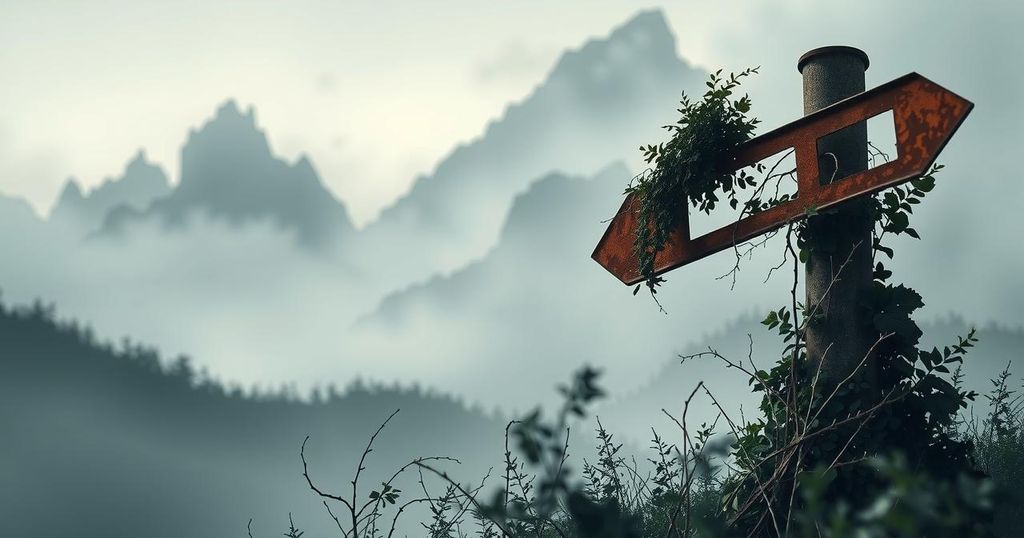M23 Rebels Claim Control of Goma, Fears of Escalating Conflict Mount

The M23 rebel group claims control of Goma in eastern DRC, raising fears of escalated conflict with the DRC government disputing this capture. The situation has led to widespread panic among residents, as military advances continue, and humanitarian aid face disruption. Etiological conditions the rebels’ resurgence include ethnic tensions and Rwanda’s alleged military support. The DRC government maintains certain control but asserts a commitment to defend its territory amid escalating violence.
The M23 rebel group has claimed the capture of Goma, a vital city in eastern Democratic Republic of Congo (DRC), intensifying concerns over escalating conflict in the region. While the DRC government denied the fall of Goma, the rebels have quickly advanced, raising tensions with Rwanda, which allegedly supports M23. This situation has led to widespread panic and disarray among the city’s population.
M23 spokesperson, Lawrence Kanyuka, asserted that the liberation of Goma has been executed successfully, urging residents to stay calm. Meanwhile, DRC authorities reported some military personnel surrendered to the rebels, with U.N. reports indicating M23’s control over essential infrastructure and roadways in and out of the city.
Reports of heavy artillery firing in Goma and a prison break involving thousands of inmates have compounded the chaos. Although the DRC government insists it retains control over strategic locations, including the airport, local residents and journalists have observed an ongoing rebel presence in significant portions of the city.
The political context is deeply rooted in more than 30 years of conflict in eastern DRC, where various armed factions vie for control over rich mineral resources. The emergence of M23 in 2012 was aimed at securing the rights of the Tutsi population, further entangling the DRC in a cycle of violence that involved foreign elements, particularly from Rwanda.
Despite Rwanda’s denial of direct military involvement, intelligence reports suggest its troops are supporting M23, exacerbating tensions between the two nations. U.N. Secretary-General António Guterres urged Rwanda to cease its backing of M23, underlining the danger of a broader conflict in the region involving multiple actors.
The current state of affairs in Goma not only threatens civilians but also raises concern for humanitarian workers amid an already dire humanitarian crisis. The anticipated disruption of aid operations and the potential for a larger regional conflict loom over the current situation, necessitating immediate international attention and intervention.
The ongoing violence in the DRC, particularly in its eastern regions, has deep historical roots, stemming from conflicts over rich mineral resources and ethnic tensions. The rise of the M23 rebel group in 2012 has been a pivotal point in this saga, with claims of both protection for the Tutsi population and accusations of foreign government involvement, notably from Rwanda. Recent advancements by M23, claiming control of Goma, have ignited fears of cycles of violence repeating, involving neighboring countries and potentially drawing in international forces. The eastern DRC has suffered from persistent instability, marked by the involvement of various armed groups and numerous civilian casualties. Current estimates indicate that over 400,000 people have been displaced since the start of the year alone, reinforcing the urgent need for humanitarian support. Important developments, such as the death of military leadership and reports of heavy fighting, highlight the volatility of the region. This situation has escalated with U.N. peacekeepers, primarily focused on supporting the DRC’s armed forces in their campaign against M23. Despite their efforts, the effectiveness of their presence has been called into question given the current rebel advances and the lack of control over critical areas like Goma and surrounding infrastructure.
The situation in Goma represents a significant escalation in the long-standing conflict in eastern DRC, with the M23 rebel group’s recent claims of control raising urgent concerns about potential regional destabilization. The humanitarian implications are dire, and the involvement of foreign powers complicates the resolution of this multifaceted crisis. As fighting intensifies, it is imperative for the international community to respond decisively to prevent further violence and loss of life.
Original Source: www.twz.com








